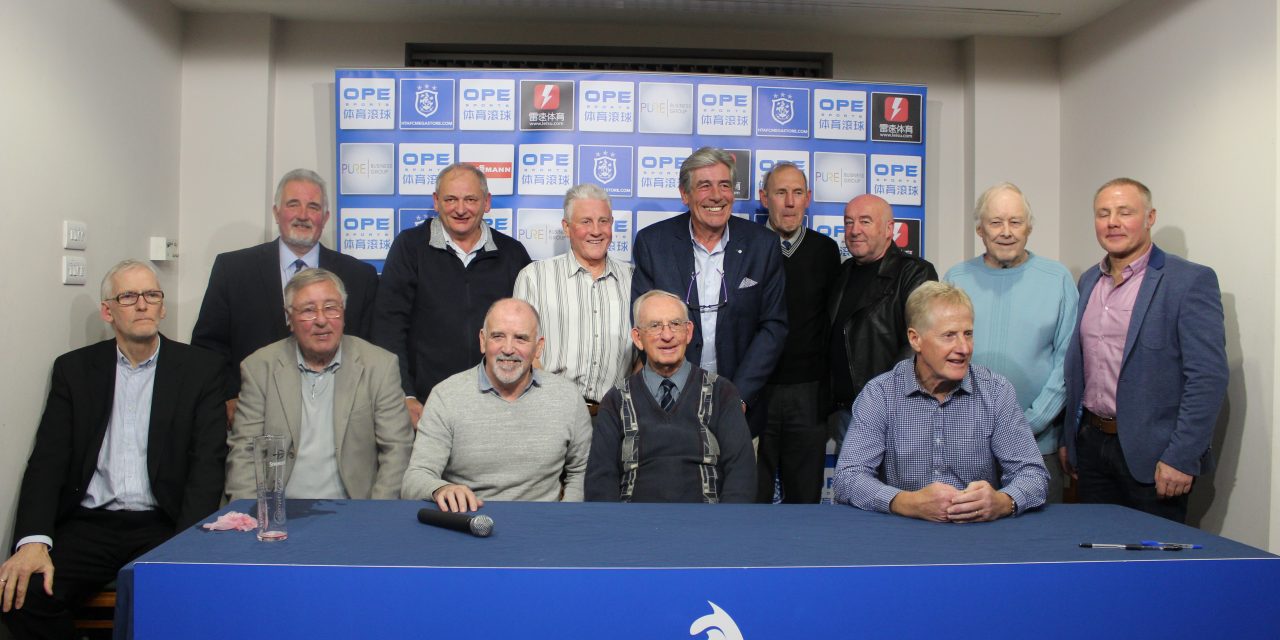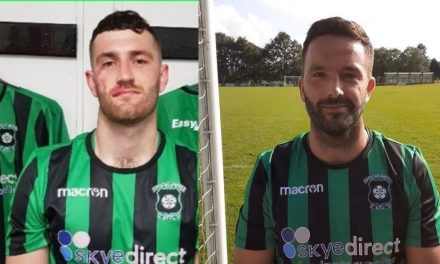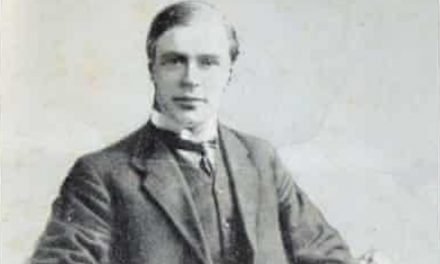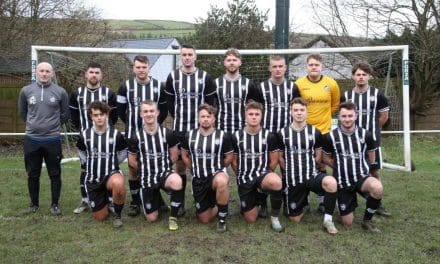By Rob Stewart Special Correspondent
Secret documents hidden away at Huddersfield Town’s home show how the Terriers blew their chance of becoming the greatest club that English football has ever seen.
There at the John Smith’s Stadium are the minutes of a crucial meeting of the club’s board of directors that would prove to be a monumental turning point in the fortunes of Huddersfield and would propel Liverpool towards the pinnacle of European football.
In a smoke-filled boardroom at Town’s old Leeds Road home in December 1, 1957, the club’s suits turned down up-and-coming manager Bill Shankly’s request for funds to be released to sign Ian St John and Ron Yeats.
Their ill-judged decision proved to be a stroke of luck for the Reds as Shankly would soon quit Leeds Road for Anfield and Liverpool never looked back – thanks to Shankly’s managerial acumen and Reds’ greats St John and Yeats.
Now long-serving former Town secretary George Binns has revealed the details of the Sliding Doors-type meeting that would change the face of English football forever.
“I have to admit that there were plenty of occasions when I didn’t know whether to laugh or cry when I was working at Town,” Binns said.
“There wasn’t a huge deal about Shankly in the club vaults although I do know he popped back to Leeds Road in the early 70s and was always warmly welcomed.
“But the time that I found out the reason why Bill Shankly had upped sticks and left Huddersfield and gone to Liverpool certainly made me want to weep.
“There, in black and white in the club archives, were the board minutes from that era, which tell the fascinating tale of Bill Shankly and Liverpool greats Ron Yeats and Ian St John.”
The Shankly saga is, according to Bins, “a classic case of what-might-have-been.”
“I know nothing is 100 per cent guaranteed in football but I think the facts back up my hunch,” Binns continued.
“Shankly left Huddersfield Town shortly afterwards when Liverpool were in the second division.
“He quickly he signed those same two players, Yeats and St John, and Liverpool never looked back and they were soon on their way to the pinnacle of English and then European football.
“Shankly’s switch across the Pennines is a famous old story that may well have changed English football history but I’ve almost cried at times over that type of thing.
“It was all to do with money. The Town board just didn’t want to part with their own money to pay for new players who were going to cost a pretty penny because they had good reputations.
“For Bill, their stubborn stance was confirmation that they didn’t match his ambition. After a good playing career, he wanted to achieve things but Huddersfield wasn’t the place to do it.”
The Scot would go on to become a Liverpool legend as he masterminded three First Division titles, two FA Cups and a UEFA Cup win over a 15-year period.
And he laid the foundations for Liverpool to become European champions for the first time in 1977 while Town were bumping in the nether regions of the old Fourth Division.
Both clubs were rivals in the old Second Division when the Town directors made their fateful decision.
“Bill was clearly a very bright and driven young manager,” said Binns.
“He made it known that he wanted to be able to sign two relatively unknown players in the shape of St John and Yeats who, like him, hailed from Scotland.
“The minutes of the meeting show that some members of the board were on Shankly’s side but some were not and so they had a vote and the vote was a tie as to whether or not they should sign them.
“The chairman had the casting vote and he voted against. Had he voted the other way, then St John and Yeats would have come to Huddersfield and they may very well gone on to enjoy the success that Liverpool subsequently achieved.”
Shankly persuaded his Anfield paymasters to cough up the cash to sign forward St John, for a club-record £37,500 and £22,000 centre-half and skipper Yeats in 1961.
Together the paid would go both go on to cement their places in Liverpool folklore.
Shankly’s managerial career began at Carlisle where he his playing days had also started before spells at Grimsby Town and Workington.
Then he headed to Huddersfield on November 15, 1955, as assistant to manager and former Preston team-mate Andy Beattie.
Beattie had guided Town to promotion to the top flight of English football but relegation followed and after a disappointing start to the new campaign, he made way for Shankly to take the helm three months into the 1956/57 season.
Initially Shankly supervised Town Reserves, who played in the Central League and looked after Town Juniors, who played in the Northern Intermediate League with a view to turning young up-and-coming players into first teamers.
Training became a labour of love for the Town players under Shankly.
According to Town and England hero Ray Wilson, who died last year following a long battle with dementia, training sessions had been “boring” under first-team coach Ray Goodall but Shankly invigorated things behind the scenes.
“All you did was lap and lap and lap,” Wilson said. “And when you did have a game, first team against second, there were to be no serious challenges. Then Bill came along, and he was so full of enthusiasm.”
Wilson and his colleagues had to get used to training twice-a-day instead of just morning sessions.
“We’d come back in the dressing room,” Wilson continued. “And he’d point to some of us to come back this afternoon.’ He used to have us playing on the car park.
“There’d always be five Englishmen, four Scotsmen and him. ‘And here we are,’ he’d say, ‘going out at Hampden Park now.’ We could never score a goal. If there was ever any doubt he’d say, ‘Not in.’
“We played till it was nearly dark. We’d say, ‘Let him score the winner.’ And as soon as he did, he’d blow for time,’ and say. ‘Scotland have won again.’
Soon all the senior players wanted to be in on the infectiously enthusiastic Shankly’s extra-curricular sessions.
After his good friend Beattie’s departure, Shankly would manage Town for three years and it was that time that he handed a 16-year-old Denis Law his debuts, before moving across the Pennines in December 1959.
“He was like a father-figure to me,” said Law from his home in Greater Manchester.
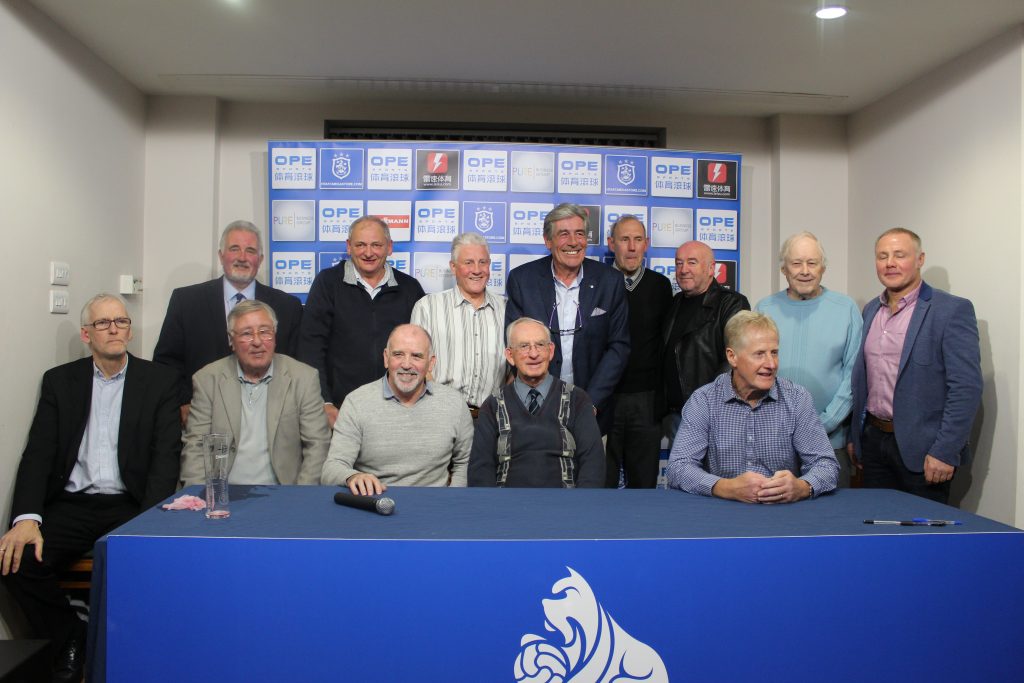
“He knew it was tough for lads like me – especially kids who had a squint like me and needed glasses – who’d moved down to England from Scotland and we got homesick.
“I missed all my family and friends and I didn’t understand what Huddersfield people were saying and they couldn’t understand me so it felt as if I’d moved to America or Africa from Aberdeen.
“But Bill helped me get through it and what I remember most about him is that he felt so passionate about football. World War II had not long finished, people were still struggling, but for Bill football was a way of making them happy.”
Shankly was certainly a man of his words – Town lost 7-6 to Charlton at The Valley despite being 5-1 up with 27 minutes left but Law and McHale missed out on the demoralising defeat due to injury.
“I was so sad when Bill left for Liverpool,” Law added. “It came right out of the club but he was ambitious so it shouldn’t have been a surprise but I was only young so I was just getting on with life.
“It was so disappointing for all the lads when we heard he was off. I just wish I could have gone there with him. Bill said I would but they were only a Second Division club at the time and couldn’t afford me.
McHale might not have reached the heights that Law enjoyed but he also benefitted from Shankly’s commitment to fielding youthful players.
“We were lucky that he was prepared to put his faith in us two young whippersnappers,” McHale said from his Huddersfield home.
“He backed you up all the time. I’ll always remember the way he made you feel six inches taller which was good for me because I was only 5ft 7in.
“I clearly remember it happening when we were down in Nottingham to play Notts County.
“We’d had a pre-match meal and we were walking across a bridge over the Trent to Meadow Lane, when Law was just about to make his first-team debut.
It certainly dis the trick that day is 1956 as Town ran out 2-1 winners with Law’s first goal coming two days later on Boxing Day at Leeds Road against…..
“We were merrily chatting away on our way to the ground and he pulled up alongside us and really got us feeling as though we were raring to go.
“He said ‘come on lads you’ve nothing to fear – you’re just up against old men whose legs have gone so you’ll run them ragged.’
“He was top drawer in the way he man-managed. He just gave us confidence to do well and it seemed to work. He did it all the time.”
As attackers, McHale – who said he was paid £20 a week with a £4 win bonus and £2 for a draw. – and Law thrived under Shankly while Town xxxxx
“As Denis has said, he liked his teams to play good football – it wasn’t just about effort; he put an emphasis on skill, pace and enjoyment,” McHale said.
“That suited me and Denis down to the ground and the crowd really liked the fact they had two kids playing in his side.
“He put us in the team because he knew what we could do so it was funny to hear Alan Hansen rubbishing Alex Ferguson on Match of the Day when he fielded a load of young players.
“We’d heard that he was wanting to sign different players to push on but no new recruits were forthcoming so it wasn’t a big surprise when he went.
“I remember him coming to address us players to say farewell in a dressing room meeting at Leeds Road. His speech went along the lines of him leaving with a heavy heart because but he was going to a place where everyone lived and breathed football.
“No one could criticise him for leaving. The directors just wouldn’t take a chance and gamble. They were too careful too tight. They could have done more to make him stay put because he was happy living in Huddersfield.
“The directors were lucky that we got quite a few really talented players but we could have done with a bit of help to move up the ladder and Bill was fully aware of that.”



